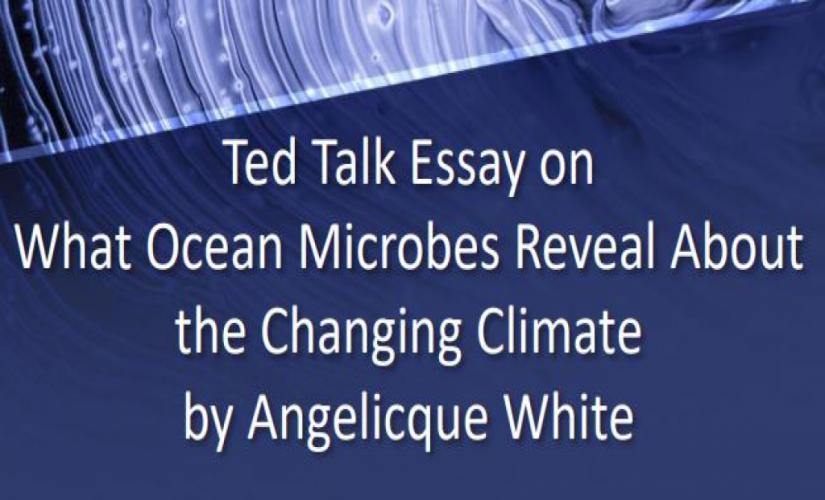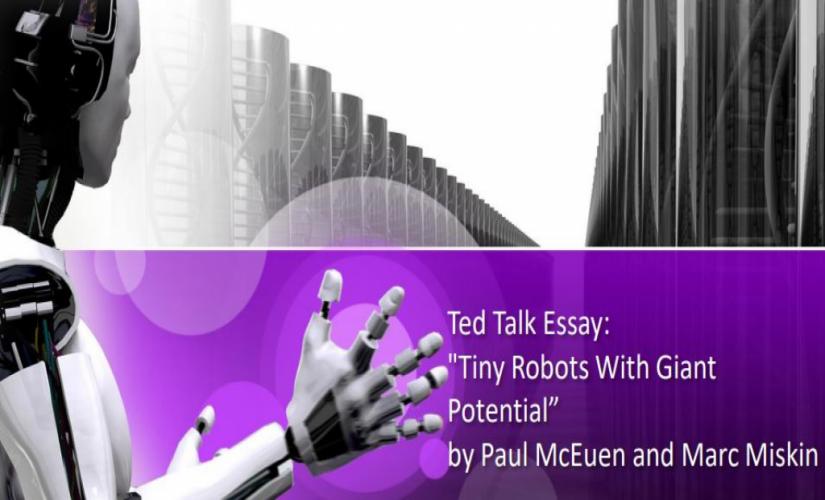Oceans are too big to ignore. Basically, the Pacific Ocean alone covers a huge part of our planet’s surface. It is a common fact that the water body covers the biggest part of Earth’s surface. However, even the slightest change to the Ocean will affect the whole planet. By considering this Ted Talk essay on “What Ocean Microbes Reveal About the Changing Climate” by Angelicque White, she speaks out about recent changes to the climate of the ocean, provides evidence to these aspects, and explains their significance and impact on the future of many species and even human lives.
General Information on Microbes
Angelicque White is an experienced biological oceanographer. She has spent most of her research in a field of microbes study. Studying microorganisms in the Pacific Ocean, she concludes that, for the last few years, the mentioned ocean is subjected to some alarming dynamics. The ocean covers 60 million square miles (White 00:00:31-00:00:35). These changes can be easily tracked. For students documenting oceanographic data, understanding how to make MLA format on Google Docs is crucial for proper formatting and citation. Since every change starts with microbes, these tiny organisms can be used as a way of measuring crucial changes in the human world. They are very sensitive to atmospheric changes. For example, since the ocean covers up to 70% of the Earth’s surface, people can judge the planet by its’ water (NOAA par. 2). Microbes are one of the most ancient organisms as they predate many species. In turn, they are not very easy to keep an eye on, as the ocean is always “on the move,” but they show nearly every alteration in climate, as they depend on it heavily. Hence, oceans’ microbes can be effectively used to keep an eye on the ecological situation on the planet.

Studying Oceans
Scientists research oceans for centuries. While tracking plankton and the toxicity levels among these groups of organisms, White noted the negative dynamics she encountered. Algal blooms, which are already harmful to humans, are linked to climate change (00:03:14-00:03:20). The result of climate change is that the ocean receives too much heat. In this case, a relatively new topic to scientific researches, “Ocean Acidification,” involves changes to ecosystems, like coral reefs and even planktons (Jiang et al. par. 1). Heat increases CO2 levels in the ocean, and, as a consequence, this aspect leads to the mentioned acidification. Moreover, the ocean gets even more dangerous algal blooms, and the negative effect speeds up, with risks of critical change rising. In turn, a decrease in pH and an increase in CO2 lead to risky changes in the chemistry of seawater. It took years of research and hard work to get these measurements, and the data provided is real and unsettling, while changes to the chemistry of seawater are no good news.
The Ecology of Oceans
The issue is opened, and society must address it as soon as possible. Yet, changes are not disastrous, and the ocean’s ecosystems have not collapsed by this time. Basically, the change is slow but lasting. Panic is not an option, but actions must be taken. In the case of a greenhouse effect, climatic change occurs because of CO2 increase that is the result of human activity (Pinet 510). Carbon dioxide increase is rapid and immense, and its level in the atmosphere affects the ocean, as the ocean absorbs the CO2. Hence, ocean acidification is a clear threat to different forms of life, including humans, but the damage can be mitigated, and the ocean can recover, as long as people address this issue.
Conclusion
The negative nature of ocean transformation can be tackled by a whole bunch of improvements to policies controlling dangerous emissions, including state programs and governmental supervision over many industries. Carbon footprint levels will rise in the next years. Although microbes are very resilient and have an impressive potential to recover, it is dangerous to keep the emissions on this level. It is not too late right now, but the scale of the changes to the ecology of Oceans is a threat for the future.
Works Cited
Jiang, Li-Qing, et al. “Surface Ocean PH and Buffer Capacity: Past, Present, and Future.” Scientific Reports, vol. 9, no. 1, 2019, pp. 1–11, 10.1038/s41598-019-55039-4.
NOAA. “How Much of the Ocean Have We Explored.” Noaa.Gov, 2009, oceanservice.noaa.gov/facts/exploration.html.
Pinet, Paul R. Invitation to Oceanography. Jones & Bartlett Learning, 2011.
White, Angelicque. “What Ocean Microbes Reveal About the Changing Climate.” Ted, 2019, www.ted.com/talks/angelicque_white_what_ocean_microbes_reveal_about_the_changing_climate.


